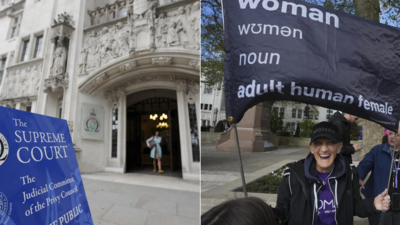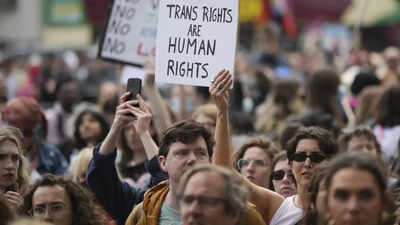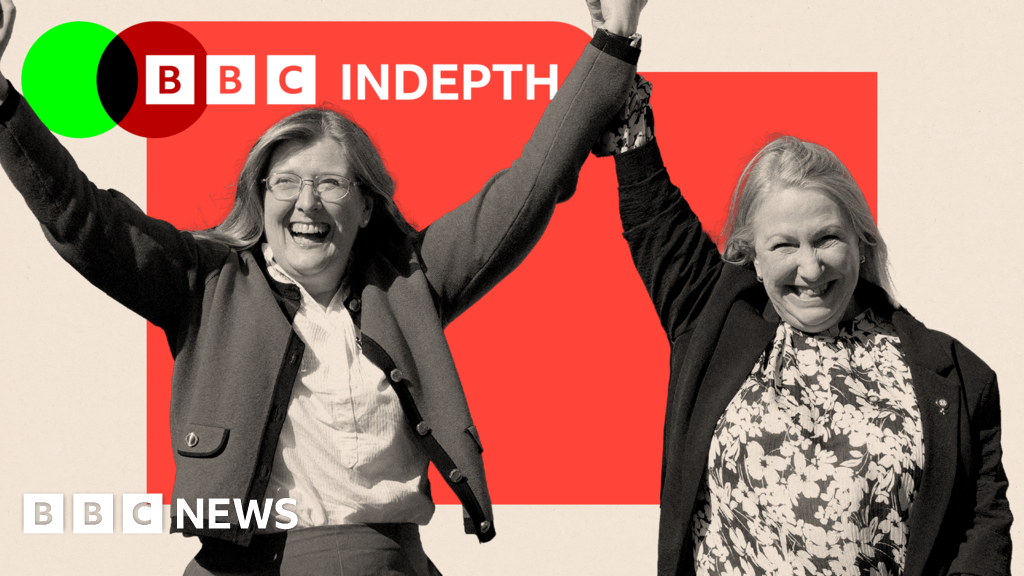UK Supreme Court Rules 'Woman' Refers Only to Biological Females

The Supreme Court of the United Kingdom has made a groundbreaking ruling on Wednesday, establishing that the term woman as defined in the Equality Act of 2010 is to be understood strictly as referring to biological females, and does not include transgender women. This unanimous verdict, delivered by a panel of five judges, carries the potential for far-reaching implications affecting various single-sex services, including domestic violence shelters, hospital wards, and sports facilities.
During the announcement of the ruling, Justice Patrick Hodge, Deputy President of the Supreme Court, clarified: The unanimous decision of this court is that the terms woman and sex in the Equality Act 2010 refer to biological women and biological sex. He emphasized that this ruling should not be interpreted as a victory for any specific group at the expense of another, stating, We counsel against reading this judgment as a triumph of one or more groups in our society at the expense of another. It is not.
This decision represents a significant setback for advocates of transgender rights and has reignited a heated public debate concerning the legal definitions of sex and gender. Legal experts indicate that the implications of this ruling may extend to future judicial decisions regarding equal pay, access to sex-segregated services, and hiring practices influenced by diversity initiatives.
Importantly, the court also clarified that while transgender individuals are protected under the Equality Act, they are classified under the separate characteristic of gender reassignment, rather than under the category of sex. The judges emphasized, Transgender people continue to be protected against discrimination.
The legal challenge was initiated by For Women Scotland (FWS), a gender-critical campaign group that opposed the Scottish Governments decision to include trans womenthose who possess a Gender Recognition Certificate (GRC)in the official definitions of women for the purposes of public sector equality duties. The court sided with FWS, effectively rejecting the Scottish Governments position that anyone legally recognized as female through a GRC should be classified as a woman under the Equality Act.
Following the ruling, JK Rowling, the author of the Harry Potter series and a vocal supporter of FWS, remarked, This case has protected the rights of women and girls across the UK. The legal challenge stemmed from an initiative launched by the Scottish Government in 2018 aimed at increasing female representation in public bodies, which controversially extended eligibility to trans women holding GRCs. FWS contended that this initiative undermined the original intent of the Equality Act, which they argued was designed to protect spaces and opportunities exclusively for biological women.
Aidan ONeill KC, the counsel representing FWS, urged the court to prioritize the facts of biological reality rather than the fantasies of legal fiction. The ruling has prompted responses from various LGBTQ+ groups, who have expressed concerns that this decision could limit access for trans women to women-only spaces like shelters and health services. In contrast, the UK government has welcomed the judgment, asserting that it brings clarity and confidence to service providers and their operations.
While the ruling primarily focuses on the legal recognition of women, it is essential to note that the court's interpretation of sex as biological sex concurrently applies to transgender menindividuals who were assigned female at birth but have transitionedwithin the same legal framework. This ruling, thus, marks a pivotal moment in the ongoing dialogue about gender identity, rights, and the legal landscape in the UK.



























